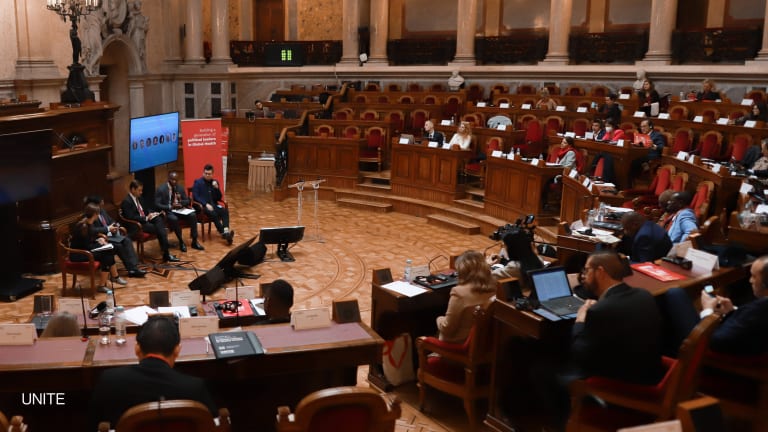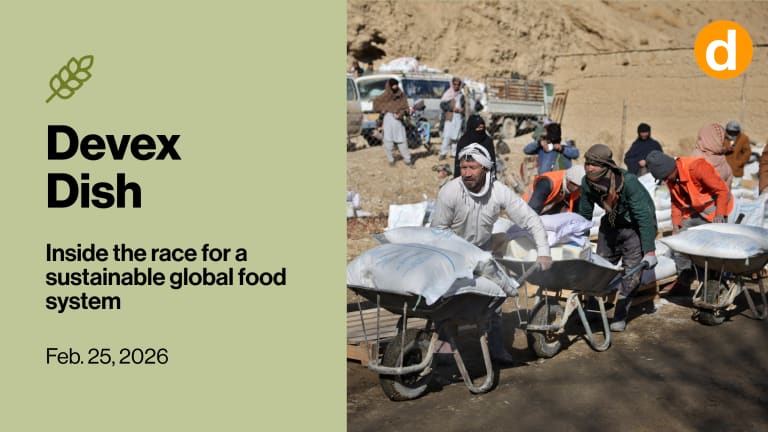
Accountability is the new magic bullet in the aid world. In the 2008 Accra Agenda for Action, donors declared that “transparency and accountability are essential elements for development results.” Linking the two issues makes sense: transparency is a necessary – though not sufficient – precondition for accountability. But will making aid more accountable necessarily make it more effective at reducing human suffering and delivering development to the poor?
I have my doubts.
An accountable organization is an organization that is obliged to manage the diverse expectations generated by various stakeholders. Both the stakeholders and their expectations may be very diverse. For example, the domestic stakeholders of a Western donor may include fellow ministries, taxpayers, parliament, and interest groups, while foreign stakeholders may include the host government and the country’s poor. Now, what happens when these stakeholders’ expectations differ, or are diametrically opposed to each other?
Let’s imagine a donor’s country office in Afghanistan trying to decide how to spend 10 million dollars. Back home, the ministries of foreign affairs and defence press for this money to be spent on building roads, which not only help farmers bring their produce to market, but will also enable the army to transport troops to remote insurgent areas. Meanwhile, the national farmers’ association at home lobbies for tied food aid: This will help to alleviate villagers’ hunger while ensuring that Western farmers can sell their produce. The Afghan government wants the money put straight into its budget, while parliamentarians at home insist on strict donor control over taxpayer money to ensure that it does not wind up in offshore bank accounts. Afghan farmers with sizeable landholdings advocate for irrigation projects, while the landless clamour for free food.
Now, if we make our donor more accountable to the Afghan government, the 10 million will end up as highly fungible and hard-to-control direct budget support, which makes that aid less accountable to taxpayers at home, arguably less accountable to poor Afghans, and very probably less effective at combating poverty. However, if we make our donor more accountable to the expectations of poor villagers – who overwhelmingly distrust the government and prefer strong donor control – the aid will be less accountable to the national government. (In a nationwide survey in the Republic of Georgia in 2008, 48 percent of respondents said that they trusted foreign donors most to spend aid funds well; only 8 percent named their own elected government.)
Making aid more accountable to any given stakeholder will make aid more effective only at one thing: furthering that player’s agenda. It will only make aid more effective at reducing human suffering and delivering development to the poor if the stakeholder shares those aims. Is poverty reduction really the overarching concern of the U.S. Congress, the Afghan government, or the German electorate? I doubt it. In fact, the U.S. Agency for International Development’s strong accountability to domestic stakeholders directly explains why such a high share of American aid is tied: The world’s biggest bilateral donor regularly defends its budget in Congress by pointing to the benefits that it generates for U.S. businesses. In other words, American aid is already highly effective – at creating jobs and growth inside the United States.
The world of donor speak is a happy world in which donors, NGOs, host governments, parliamentarians and a myriad of interest groups are all united in the single-minded pursuit of global poverty reduction. The real world is different. Accountability is power. Making an aid programme more accountable to one stakeholder will make it less responsive to the demands of rival stakeholders with competing expectations. More accountability does not always lead to win-win outcomes.
Making aid more accountable to parliamentarians in rich countries is unlikely to make it more effective at helping marginal groups in poor countries. Making aid more accountable to recipient governments – elected or otherwise – will result in more budget support. This may look like effective aid on paper, but in practice will often only be effective at lining politicians’ pockets. If we want to use accountability as a tool to make aid more effective at reducing human suffering and delivering development to the poor, we need to make it more accountable to the suffering and the poor – not in addition to other stakeholders, but at the expense of other stakeholders. Sometimes, one party’s gain is another party’s loss.
I have no easy solutions to propose. But we need to decide what the aid accountability agenda is actually trying to achieve. Transparency and accountability are not ends in themselves, they are means to an end. If we want to use accountability as a tool to make aid more effective at helping the poor, we have to abandon the comforts of donor speak and seriously engage with the complex world of conflicting interests, mixed political agendas, and – most importantly of all – power.
Do you agree? How can aid workers reconcile their accountability to various stakeholders, including employers, donors and constituents? Please share your thoughts by posting a comment below!
Read more of Full Disclosure: The aid transparency blog, written by aid workers for aid workers.








